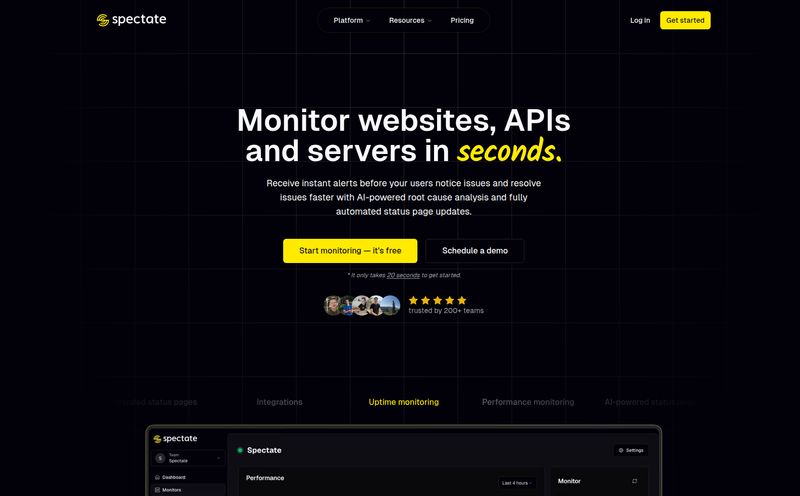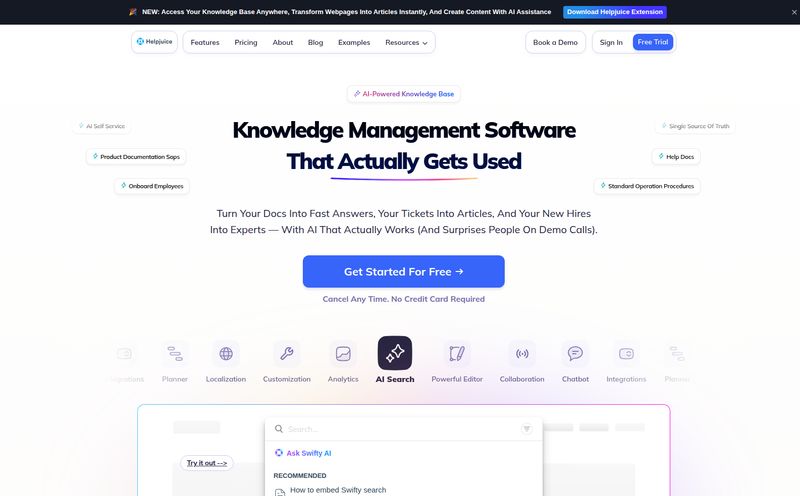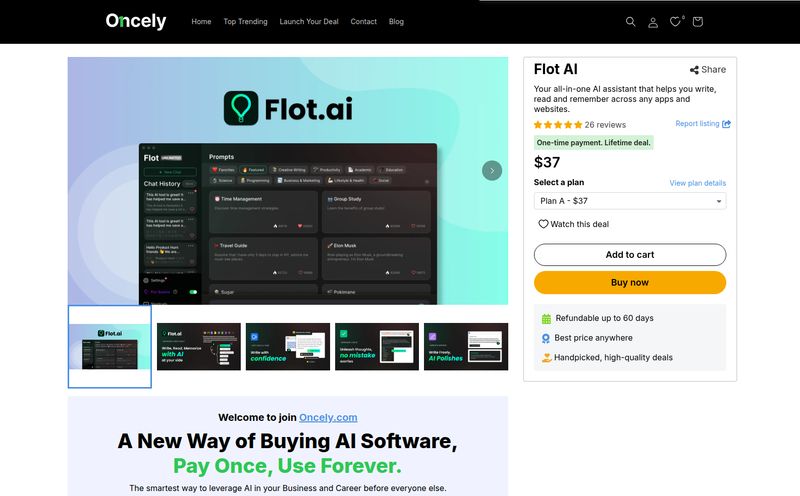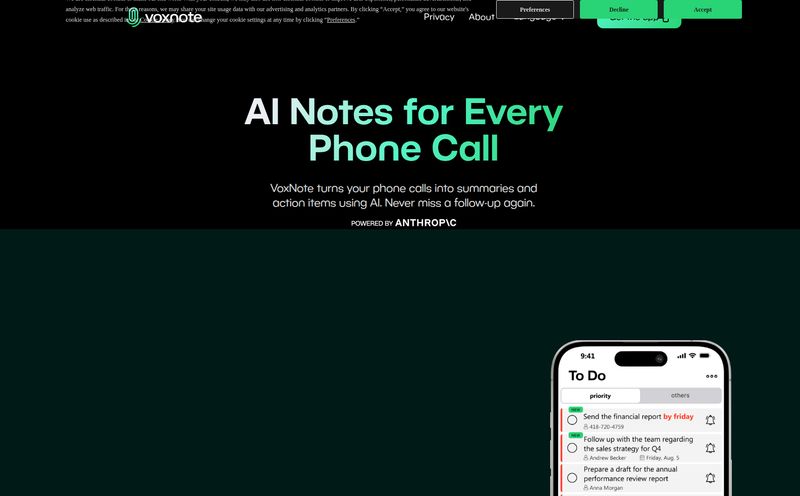Studying can be a total slog. We've all been there—hunched over a desk at 2 AM, fueled by lukewarm coffee and desperation. Your textbook is a sea of fluorescent highlighter ink, you have a mountain of messy notes, and you still feel like you're getting nowhere. For years, the process hasn't changed much. You read, you write, you repeat. Maybe you use a digital flashcard app if you're feeling fancy.
But the world of AI is moving at a breakneck speed, and it's starting to knock on the classroom door. A whole new wave of AI-powered study tools are popping up, all promising to make learning easier, faster, and more effective. One that caught my eye recently is StudySim. The name is catchy, the website looks slick, and it boasts being trusted by students at places like Harvard and Stanford. My inner cynic immediately perked up. Yeah, right.
So, as someone who spends their days neck-deep in digital trends and traffic, I had to see if it was legit. Is StudySim the future of studying, or is it just another overhyped app destined for the digital graveyard? I signed up and put it through its paces.
So What Exactly Is StudySim?
First off, let's get one thing straight. This isn't just another Quizlet clone. Think of StudySim less as a simple tool and more as an AI-powered engine for your brain. The core idea is simple but powerful: you feed it your study materials—and I mean all of them. We're talking lecture notes, dense PDF textbooks, Word docs, even audio recordings and video lectures. StudySim then digests all that information and spits it back out in incredibly useful formats: dynamic flashcards, comprehensive study guides, and custom-built quizzes.
It’s less like a photocopier for your notes and more like a personal tutor who’s read all your material and is ready to grill you on it. It claims to adapt to your learning style, which is a pretty bold claim, but one I was eager to test.
A Walkthrough of the Key Features That Actually Matter
An app can have all the bells and whistles in the world, but if the core features don't deliver, it's useless. Here’s how StudySim’s main offerings held up in my testing.
The AI Flashcards Actually Feel Smart
I’ve used plenty of flashcard apps. You type a term on one side, a definition on the other. It's tedious. StudySim’s approach is different. It generates the flashcards for you based on the material you upload. But the cool part is the built-in spaced repetition system. It’s a learning technique that's been proven to increase retention by showing you difficult concepts more frequently. So, the flashcards don't just feel random; they feel like they're actively trying to find and patch the holes in your knowledge. It’s a small touch that makes a huge difference.
Turning Chaos into Clarity with Study Guides
This, for me, is the star of the show. I decided to throw it a curveball: a horribly scanned, slightly skewed 70-page PDF on macroeconomic theory from an old college course I barely passed. You know the one. Within minutes, StudySim had processed the whole thing and generated a surprisingly coherent, well-structured study guide. It pulled out key definitions, summarized complex paragraphs, and organized everything with clear headings. It was like watching an alchemist turn a pile of lead (my chaotic notes) into pure gold. The ability to do this with audio and video is just the cherry on top. Imagine turning a two-hour lecture into a scannable study guide. Game-changer.
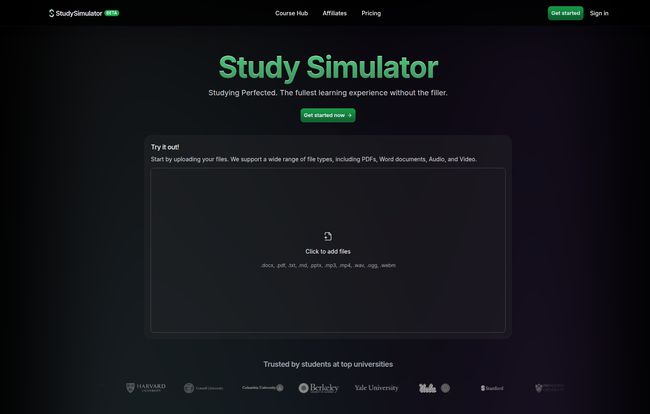
Visit StudySim
Creating Quizzes That Don’t Feel... Robotic
Anyone can make a multiple-choice quiz. But making a good one is hard. StudySim’s quiz generator is pretty impressive. It creates a mix of question types, including open-ended questions that really make you think. But the best feature? For every answer, you can get a detailed explanation of why it's correct, pulled directly from your source material. This turns quizzing from a simple memory test into a genuine learning opportunity. You’re not just guessing; you’re understanding.
The Real-World Test: The Good and The Not-So-Good
Okay, so it sounds great on paper. But what’s it like in practice? Here's the breakdown.
What I Genuinely Liked
The biggest win here is the time-saving aspect. The hours I would have spent manually creating flashcards or summarizing chapters were cut down to minutes. It's a massive productivity boost. The personalization is also real. The more you use it, the better it seems to get at understanding what you need to focus on. And the versatility of accepting so many file types means you can centralize all your study efforts in one place. I gotta admit, seeing a tool seamlessly handle a PDF, a Word doc, and an MP3 file for the same course felt a little like magic.
A Few Reality Checks
Now for a dose of reality. This tool isn't a magic wand. The quality of the output is directly tied to the quality of the input. It's the classic 'garbage in, garbage out' principle. If you upload rambling, incoherent notes, you'll get a rambling, incoherent study guide. The AI is smart, but it can’t read your mind or fix fundamentally flawed source material. Also, you obviously need an internet connection, which is a non-issue for most people but something to be aware of. Lastly, it’s a tool to focus your effort, not eliminate it. You still have to do the work of learning, StudySim just clears away the tedious administrative tasks so you can focus on what matters.
The Big Question: What's the Damage? (A Look at Pricing)
Alright, let's talk about the price. No one wants to add another hefty subscription to their monthly bills, especially students. When I first looked at StudySim, the pricing was a bit of a mystery, but they’ve since clarified their tiers. Here's how it breaks down:
| Plan | Price (Billed Yearly) | Key Feature |
|---|---|---|
| Essential | $14.99 per month | 250k word limit, unlimited everything else |
| Pro (Most Popular) | $19.99 per month | 500k word limit, unlimited everything else |
| Advanced | $29.99 per month | 1M word limit, unlimited everything else |
In my opinion, the pricing is pretty reasonable for what you get. The Essential plan is likely perfect for a high school student or a college student taking a standard course load. The Pro plan seems like the sweet spot for university students with multiple, heavy-reading courses. The Advanced tier is probably best for grad students, researchers, or professionals studying for major certifications who are dealing with massive volumes of text. The word limits are quite generous, honestly.
Your StudySim Questions, Answered
Can I use StudySim for free?
The website has a "Get Started" button that usually implies a free trial or a freemium version to test the waters. I'd recommend checking it out to see how the features work with your own materials before committing to a paid plan.
What file types does StudySim support?
It supports a wide range of files, which is one of its biggest strengths. You can upload PDFs, Word documents, and even audio and video files to create your study materials.
How accurate is the AI-generated content?
It's surprisingly accurate, but its accuracy depends entirely on the clarity and quality of the materials you provide. If your source text is well-structured and clear, the AI-generated guides and quizzes will be excellent. Think of it as a very smart, very fast summarizer, not an independent researcher.
Can I share my study materials with friends?
Yes! The platform allows you to share the quizzes and guides you create. This is great for study groups, allowing everyone to work from the same custom-built material.
Is StudySim available in different languages?
Yes, the platform boasts support for over 50 languages, making it a powerful tool for international students or those studying a foreign language.
The Final Verdict: Should You Simulate Your Studies?
So, after all my poking and prodding, what's my final take? I walked in a skeptic, and I'm walking away genuinely impressed. StudySim isn't a replacement for hard work and critical thinking. You cant just upload a book and expect to ace the exam without effort. However, it is an incredibly powerful amplifier for that effort.
It automates the most boring, time-consuming parts of studying—summarizing, creating flashcards, writing practice questions—and frees you up to spend your time on the stuff that actually matters: understanding, connecting ideas, and committing knowledge to memory. For any student drowning in reading material or just looking for a more efficient way to learn, I think StudySim is absolutely worth a look. It feels less like a fad and more like a glimpse into the future of personalized education.
Reference and Sources
- StudySim Official Website: studysim.ai
- Wikipedia on Spaced Repetition: https://en.wikipedia.org/wiki/Spaced_repetition
